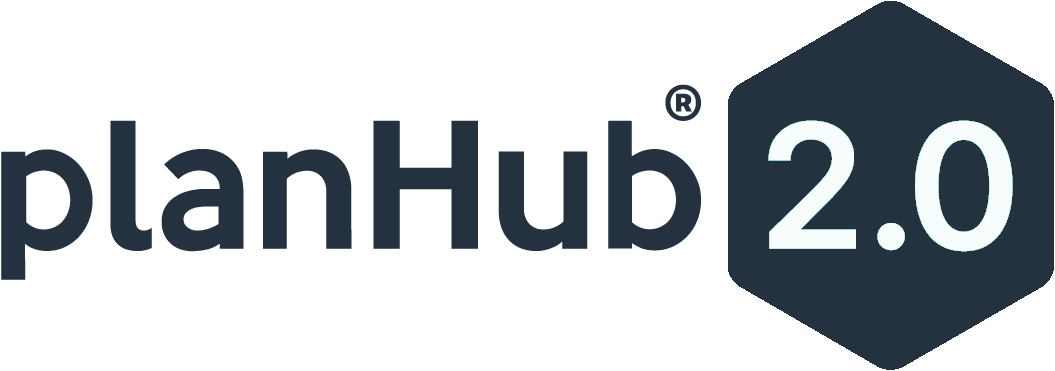- Jesel Silva
It’s surprising that with technology being such a vital part of our lives, the construction industry is one of the slowest to embrace it. Statistics show that 90% of construction executives say they still use outdated tech and processes (like Excel spreadsheets, email, and paper) for 25-100% of their business processes. This may be hard to believe, but the truth is these legacy processes work and many (50%) are satisfied with the way they’re currently doing things.
If they’re satisfied with things and there’s no incentive to adopt technology, why would construction companies update? The truth is there are incentives for digitization in the industry. According to McKinsey, digitizing processes could improve productivity by 14-15% and reduce costs by 4-6%. With many companies running on tight profit margins, these gains could be significant.
Before we look at how companies can digitize their businesses, let’s see what’s been holding the industry back.
Digital Transformation in construction
Digital transformation in the construction industry is revolutionizing how projects are planned, executed, and managed. Here’s an overview of its impact and benefits:
- Streamlining Processes: Digital transformation enables the streamlining of various construction processes, from design and planning to project management and maintenance. This leads to increased efficiency and better project outcomes.
- Enhanced Collaboration: The use of digital tools, such as cloud-based project management software, improves collaboration among stakeholders, including architects, engineers, contractors, and clients. This results in fewer errors and delays.
- Improved Decision-Making: Access to real-time data and analytics helps in making informed decisions, enhancing the overall quality of construction projects.
- Increased Efficiency: Technologies like Building Information Modelling (BIM) and 3D printing optimize design and construction processes, leading to significant efficiency gains.
- Enhanced Safety: Digital tools contribute to improved safety on construction sites by enabling the use of wearable sensors, drones for site inspection, and monitoring for potential risks.
- Sustainability: Digital transformation aids in the use of green building materials and practices, contributing to reduced waste and lower carbon emissions.
- Overcoming Challenges: The construction industry faces challenges in digital transformation, including resistance to change, integration issues, and cybersecurity risks. Addressing these challenges involves providing training, implementing clear data management standards, and choosing compatible digital tools.
- Successful Implementation: To successfully implement digital transformation, it’s crucial to define clear goals, choose the right tools, secure stakeholder buy-in, conduct digital readiness assessments, provide training, and monitor progress.
Digital transformation is essential for the construction industry to remain competitive and meet the growing demands for efficiency, safety, and sustainability. By leveraging technologies like BIM, drones, and project management software, construction firms can significantly improve their operations and project outcomes.
Why is digital transformation important in construction?
Digital transformation is increasingly important in the construction industry for several compelling reasons:
- Enhanced Efficiency and Productivity: Digital tools and technologies like Building Information Modeling (BIM), 3D printing, and automated machinery streamline construction processes. This leads to significant improvements in efficiency and productivity, reducing time and cost overruns.
- Improved Collaboration and Communication: Digital platforms facilitate better collaboration among various stakeholders in a construction project. Cloud-based project management software allows for real-time sharing of information and updates, reducing misunderstandings and errors.
- Data-Driven Decision Making: The use of digital technologies enables the collection and analysis of vast amounts of data. This data-driven approach aids in making more informed decisions, optimizing resources, and predicting potential issues before they arise.
- Increased Safety on Construction Sites: Digital transformation can significantly enhance safety. Technologies like drones for site inspection, wearable safety devices, and advanced simulation tools help in identifying and mitigating risks, leading to safer work environments.
- Sustainability and Environmental Compliance: Digital tools help in planning and executing construction projects in a more environmentally friendly manner. They aid in efficient resource management, reducing waste, and ensuring compliance with environmental regulations.
- Competitive Advantage: In an increasingly competitive market, embracing digital transformation can give construction companies a significant edge. It can improve their ability to deliver projects on time, within budget, and to a higher quality standard.
- Adaptability and Scalability: Digital tools and platforms are scalable and adaptable, allowing construction companies to grow and adjust to changing market demands and project scopes.
- Customer Satisfaction: Enhanced efficiency, improved communication, and the ability to deliver projects on time and within budget lead to higher customer satisfaction.
- Overcoming Industry Challenges: The construction industry faces challenges such as labor shortages, rising material costs, and complex regulatory environments. Digital transformation provides tools to navigate these challenges more effectively.
- Future-Proofing the Business: As the world becomes increasingly digital, companies that do not embrace digital transformation risk falling behind. Adopting digital practices is essential for future-proofing a business in the construction industry.
In summary, digital transformation in construction is not just about staying current with technological trends; it’s a strategic imperative for improving efficiency, safety, sustainability, and overall project success.
Benefits of Digital Transformation in Construction
The benefits of digital transformation in the construction industry are numerous and impactful, significantly enhancing the way construction projects are managed and executed:
- Improved Efficiency and Productivity: Digital tools like Building Information Modeling (BIM) and automated machinery streamline construction processes, reducing time and cost overruns. This leads to more efficient project management and higher productivity.
- Enhanced Collaboration: Digital platforms enable better collaboration among project stakeholders, including architects, engineers, contractors, and clients. Cloud-based project management software allows for real-time communication and information sharing, reducing the risk of errors and delays.
- Data-Driven Decision Making: The use of digital technologies in construction provides access to real-time data, enabling project managers to make informed decisions. This improves project outcomes and helps in managing resources more effectively.
- Increased Safety: Digital transformation contributes to improved safety on construction sites. Technologies like drones for site inspection and wearable safety devices help in identifying and mitigating risks, leading to safer work environments.
- Sustainability: Digital tools aid in sustainable construction practices by optimizing resource use and reducing waste. They also help in ensuring compliance with environmental regulations and standards.
- Competitive Advantage: Embracing digital transformation gives construction companies a competitive edge. It enables them to deliver projects more efficiently, within budget, and to a higher quality standard, which is crucial in a competitive market.
- Customer Satisfaction: Enhanced efficiency, improved communication, and the ability to deliver projects on time and within budget lead to higher customer satisfaction.
- Adaptability and Scalability: Digital tools are scalable and adaptable, allowing construction companies to grow and adjust to changing market demands and project scopes.
- Overcoming Industry Challenges: The construction industry faces challenges such as labor shortages and rising material costs. Digital transformation provides tools to navigate these challenges more effectively.
- Future-Proofing the Business: As the world becomes increasingly digital, adopting digital practices is essential for construction companies to stay relevant and competitive.
Digital transformation in construction is not just a trend but a strategic necessity that brings about improved efficiency, safety, sustainability, and overall project success.
Roadblocks to digitization in construction
Why has the construction industry waited so long to adopt new technologies? It turns out the nature of the industry plays a large role in preventing widespread technology adoption.
Diversity of projects
Each construction project is different from the one before. No two sites or buildings are exactly the same. This can make standardizing processes difficult for contractors.
Limited connectivity
Some projects take place in out of the way areas where connectivity can be an issue. When tech requires input from the field, it can be difficult to get with spotty internet reception and a lack of infrastructure.
Large, varied teams
Each project involves a large group of people and companies. This mix of owners, contractors, subcontractors, and suppliers is constantly changing, making it difficult for whole teams to adopt the same tool. In addition, these teams are only together for a relatively short time, providing no incentive for members to buy into tech solutions.
Data security
We all know that data security and protection from cyber-attacks is a crucial concern for all companies in all industries. The advantage with older processes is that they aren’t as vulnerable to these risks.
Lack of IT talent
Only the largest construction companies can afford to have full-time IT workers. Smaller companies often don’t have the talent to help them roll out new tech and ensure that it remains in service.

How to start digitizing your construction business
Despite these challenges, there are ways that construction businesses can begin the process of digitization. The key is to start small and ramp up as your team becomes more comfortable with the new ways of doing things. Taking on too much at one time can lead to employee confusion and frustration, which can hamper your efforts.
Cameras
The pandemic certainly changed how we looked at site inspections and visits. With limitations on travel and the desire to keep on site numbers small, many looked to cameras to help them view work from a distance. Smart cameras can help teams with safety, monitor work progress, and document site conditions.
AR and VR
Both augmented reality (AR) and virtual reality (VR) have been successfully used in the construction industry. They have been used to provide customers with a walk-through of their project before ground is broken, as well as providing installers with instructional data as they work.
Digital twins
Digital twins are a virtual copy of a physical item, like a building. They help teams model and predict real life scenarios during the design process and help with operations and maintenance post-occupancy.
Online take-offs
Doing material take-offs manually can lead to errors due to the number of manual calculations involved. Even a small mistake can cost you. Digital take-offs allow you to get an accurate count and measurement without the expense of printing drawings. PlanHub’s Measuring Tools help you create more accurate estimates, leading to more winning bids.
Electronic payments
While the rest of the world has hopped on the electronic payment train, construction still relies almost exclusively on paper checks. It takes additional time to process payments, and there can be delays in receiving them. Electronic payments help make payments streamlined and fast, while maintaining full control over who gets paid when.
Contractors looking to digital solutions to help improve their production and profitability are finding it. While it is always good to “look before you leap,” waiting too long could mean your company gets left behind.



